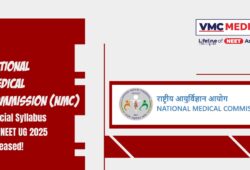How to select between MBBS and BDS through NEET?
 Posted On
Posted On
97 total views, 1 views today
Selection between MBBS and BDS can be a bit tough for NEET aspirants because both deals with careers where students opt for unique opportunities of promising careers and with a wide scope to make a difference between human beings’ health and well-being. An MBBS student needs to evaluate their interests, long-term goals, and the nuances of each field to make an informed choice. This blog really does the job of deep-diving comparison between MBBS and BDS, thus helping a student make a well-informed decision.
MBBS: An Overview
MBBS is an undergraduate program highly desired by students who want to become doctors. It provides students with knowledge about general medicine, surgery, and healthcare. The total period of the MBBS course usually runs for 5.5 years, which is comprised of 4.5 years of academic study along with a one-year compulsory internship.
Why MBBS?
1. Specialization Options: After MBBS, there are various specializations available for the post-graduation studies, such as cardiology, neurology, gynecology, pediatrics, orthopedics, and many more.
2. Global Recognition: An MBBS degree is highly recognized, thereby opening career opportunities on a global scale.
3. Impact on Society: The saving of lives and aiding the health of the community makes doctors very fulfilling professionals.
4. Career Stability: A doctor’s job remains highly sought after due to the steady demand for quality doctors and hence remains secure financially.
BDS: An Overview
BDS is an undergraduate program focusing on dental science, which will cover the subject of oral health, surgery, and prosthodontics. The duration of the course is five years, with four years of academics and one year of internship.
Why BDS?
1. Focused Specialization: BDS is a specialization course in dental sciences directly. It is especially suitable for those interested in oral care.
2. Higher Demand of Professionals: The awareness towards dental health has led to an ever-increasing demand for good dentists.
3. Entrepreneurial Business: Dentists mostly open up their own clinics, so one can even work with them independently.
4. Less Time-Consuming Courses: After going through the extended period of education in MBBS, BDS is a relatively shorter route to getting into the workforce.
Problems of BDS
• Limited Fields of Specialization: Dentistry has lesser fields of specialization as opposed to MBBS.
• Early Challenges: Private dental practice requires very much investment and time.
• Competition Issue: The profession is very competitive as sometimes multiple dentists are doing practice in urban areas.
Key Considerations for Making Decisions
1.Your Passion and Interest
o Are you interested in the human body, diverse medical cases, and surgeries? If yes, MBBS could be your best choice.
o Do you enjoy working on oral health and envision yourself running a dental clinic? Then BDS could be a better fit.
2. Career Goals
o If you aim for a broader scope in healthcare with opportunities to work in multiple fields, MBBS offers that flexibility.
o If you prefer a specialized and focused area, BDS is tailored for dental expertise.
3. Work-Life Balance
o MBBS graduates often face hectic schedules, long hours, and emergency calls.
o Dentists generally have more predictable working hours, making BDS suitable for those seeking better work-life balance.
4. Financial and Time Investment
o MBBS requires more extended education and financial commitment, especially if pursuing specialization.
o BDS allows quicker entry into the professional world, with relatively lower educational expenses.
The Future of MBBS and BDS
Both MBBS and BDS graduates are in great demand. From diagnostics and AI in diagnosis to robotic surgery, everything is advancing, so doctors and dentists must keep themselves updated to stay in the fray.
• MBBS Graduates:
o Recent fields like telemedicine and personalized health have new opportunities.
o Global opportunities are now expansive, particularly in uncovered areas.
• BDS Graduates:
o The market for cosmetic dentistry and dental implants is booming.
o Increased demand for skilled dentists in the wake of awareness campaigns for oral hygiene.
Final Thoughts
Deciding between MBBS and BDS is a highly personal choice. Both fields require hard work, dedication, and a commitment to lifelong learning. Consider your interests, career aspirations, and the kind of lifestyle you would like for yourself. While MBBS offers a wider spectrum of opportunities in general medicine, BDS provides a focused career in dental sciences with entrepreneurial prospects.
Remember, it is for passion and compassion that, with skill and knowledge, one undertakes the noble profession of caring and healing. Whichever path you choose, your contribution will make a difference in people’s lives – a noble pursuit in itself.




